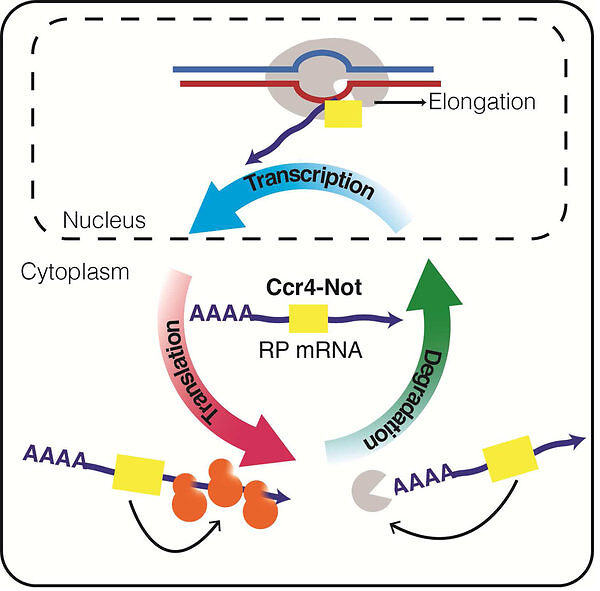Seminar "Translational capacity of a cell is determined during transcription elongation via the Ccr4-Not complex" Prof. Martine Collart.

Date
Location
Description
Abstract: Current understanding of gene expression considers transcription and translation to be independent processes. Challenging this notion, we found that translation efficiency is determined during transcription elongation through imprinting of mRNAs with Not1, the central scaffold of the Ccr4-Not complex. We determined that another subunit of the complex, Not5, defines Not1 binding to specific mRNAs, particularly those produced from ribosomal protein genes, during transcription. This nuclear imprinting mechanism specifically regulates ribosomal protein expression, which in turn determines the translational capacity of cells. In the absence of Not5 ribosomal mRNAs that lose association with Not1 are less translated and more stable. As a proof of concept, we demonstrate that tethering Not5 to the cytoplasm leads very rapidly - within 5 minutes – to marked depletion of RP mRNAs from polysomes. Our data indicates that newly exported mRNAs contribute importantly to the pool of translated and Not1-bound RP mRNAs. Interestingly, Not5 tethering to the cytoplasm has no or very little effect on the nuclear localization of Not1, suggesting that Not5 is loosely connected to Not1 or that the Ccr4-Not complex exists in different forms. Taken together our data indicates that in addition to defining mRNA stability, components of the Ccr4-Not imprinting complex regulate mRNA translatability, thus ensuring global gene expression homeostasis.
(https://www.faseb.org/SRC-Microsite/mRNA/Home.aspx)
Host:
Tadashi Yamamoto, Cell Signal Unit
Subscribe to the OIST Calendar: Right-click to download, then open in your calendar application.



